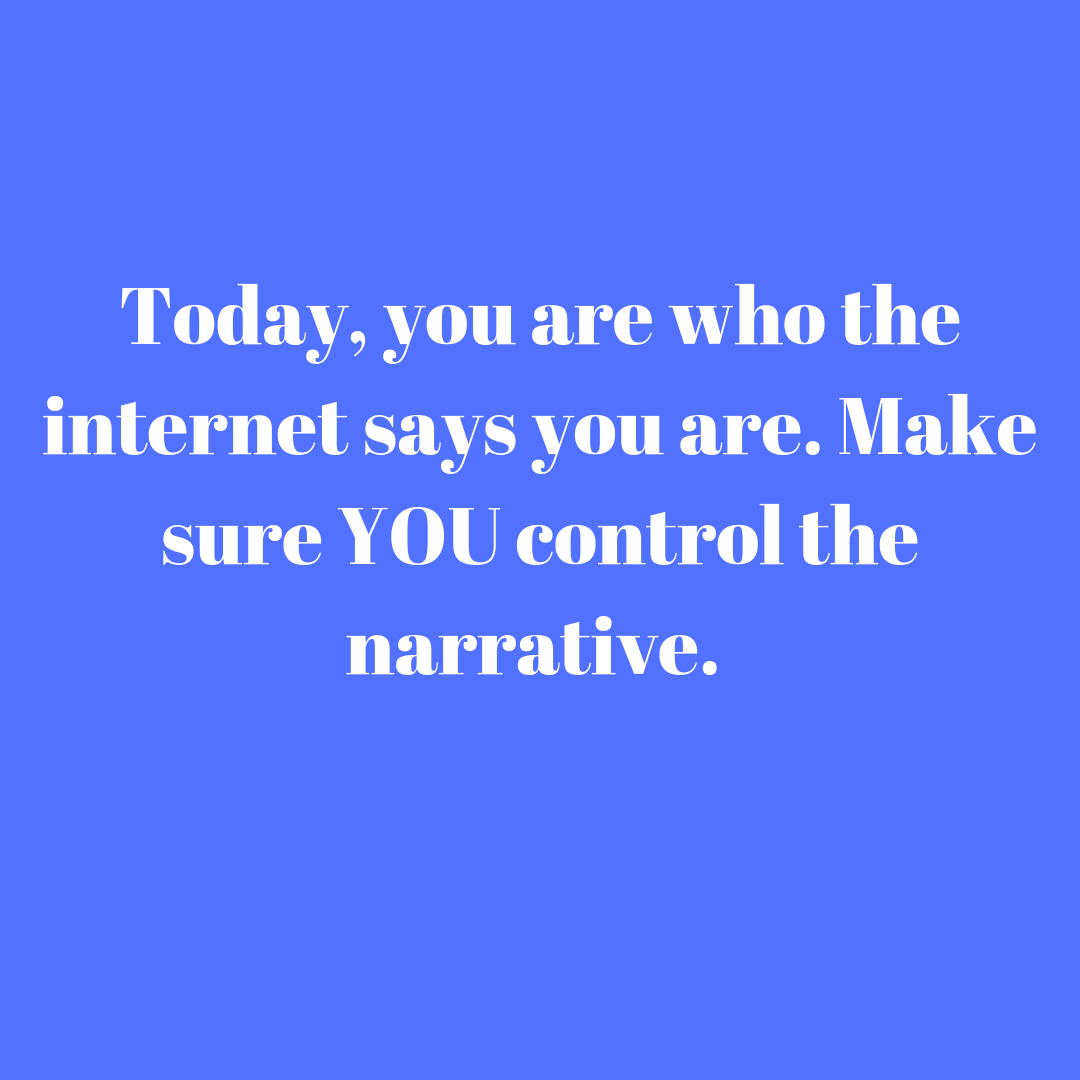Make Sure You’re Helping (Not Hurting) Yourself On Social Media
A few years ago, barely a week when by without news of someone getting fired because of something they posted on social media. As awareness grew people have become more careful.
That’s a good thing.
Particularly if you’re looking for a new job.
Today, 70% of employers research candidates on social networking sites and 47% say that they’re unlikely to contact a candidate for an interview if they can’t find them online, according to a 2018 Career Builder survey.
What are they looking for?
58% —Information that supports the candidate’s qualifications for the job
50%—If the candidate has a professional online persona
34%—What other people are posting about the candidate
22%—A reason not to hire the candidate
What turns employers off?
Most, if not all, career professionals will tell you to avoid being negative. Even if your boss is the devil incarnate, it’s not something you should share. Here are some numbers: 25% of survey respondents said a primary reason they didn’t hire a candidate was because they bad-mouthed their previous company or fellow employee.
7 Ways To Increase Your Chances Of Getting A New Job
Most of us wouldn’t buy a home or a car or even a new phone without some planning. Before a large purchase we’d check our credit report and research prices. Depending on the purchase, we might read reviews of realtors or retailers. We want to be prepared when we find the perfect whatever.
Yet, many people jump into a job search, a process that could change their life, with no preparation.
They see a few interesting job posts and decide it’s time for a change.
Often, they don’t have their resume or LinkedIn profile recruiter ready. They haven’t researched the salary range for the position they seek. They may not even have a clear understanding of what they want in a new position.
Big mistake.
A job search requires as much preparation as any other big move. Here are 7 steps you need to take before you begin your job search.
How To Take Control Of Your Narrative
As I tell my clients, today you are who the internet says you are. Which makes it essential for you to control the narrative. To do that you need to know what’s out there and monitor your online presence going forward.
Today recruiters and hiring managers are researching candidates online as part of the interview process. Make sure there are no surprises. Start by doing a Google search on yourself. This will give you an idea of what others will find out about you and anyone else with the same name.
While you may not realize it, there are probably dozens, if not 100’s, of people with your name out there. Searching my name on Google turns up 9K+ results. One of them is my ex-sister in law who’s a veterinarian in California. She’s nice, I don’t know anything about the rest of them.
Think A Little Negativity Won’t Hurt? Think Again.
Everyone expects to have recruiters and potential employers view their LinkedIn profile. But what you may not realize they are probably checking you out via a Google search as well.
In 2015, 52% of employers were investigating candidates online as part of the hiring process according to a CareerBuilder survey. Imagine what the percentage is today.
I’ve spoken to CEO’s who personally research every potential hire online before making an offer. So be sure to monitor your online presence. And be careful what you write and post online.
Avoid Sending Negative Emails
My grandmother used to say don’t put anything in writing that you wouldn’t want to read on the front page of the newspaper. Today, that goes for email as well because you can’t control who, besides the intended party, will read it.
Your email may be forwarded, intentionally or unintentionally, to someone you don’t want to see it. Maybe even your boss. Don’t expect any privacy at the office as your email is probably being monitored by your employer.
3 Ways To Get Hired Using Social Media
Barely a week goes by without news of someone getting fired over a post on social media. Some are truly horrific, like the bankers who were fired because they thought it would be fun to reenact a beheading. Others are merely stupid, like the Colorado teacher who was canned after posting racy tweets.
But, what you may not realize is that inappropriate behavior on social media can also keep you from getting hired in the first place.
Today 52 percent of employers are investigating candidates online as part of the hiring process, up from 43 percent in 2014, and 39 percent in 2013 according to a 2015 report from CareerBuilder. In the study, 48 percent of employers who reported researching candidates on social media said that something they found caused them not to hire the candidate.
What turns employers off?
3 Career Lessons From The Presidential Election
Today marks one of the most historical elections of our lives. It’s also the end of a divisive election season. One that most of us are eager to see end.
While this is not a political post, there are many career lessons to be learned from this election cycle. Here are 3 things to remember.
Be Careful with Email
My grandmother used to say don’t put anything in writing that you wouldn’t want to see in the paper. Today, that goes for email as well. While it’s unlikely that your email will be hacked by a foreign entity you can’t control who, besides the intended party, will read it.
Will Your Online Presence Scare Employers Away?
Increasing numbers of recruiters and employers are conducting online searches on job candidates. In response, many job seekers are completing their LinkedIn profiles and being a little more careful about what they post online.
But, the truth is that’s not enough because what’s published online can stay there forever. It’s up to you to research your digital footprint and monitor your online presence going forward.
Initial Search
Before you begin your job search, make sure you know what is out there. Pretend you’re a recruiter and conduct your own online search. Try searching on your name and variations of you name.
Think You Can’t Find A Job Through An Online Connection? Think Again.
Many people I talk to, particularly those over a certain age, scoff at the idea that there can be any true relationship with the folks you meet online.
A few of my friends had to be dragged kicking and screaming to LinkedIn. Almost every job seeker I’ve suggested sign up for Twitter says, “That’s not for me.”
Really, not for you?
Why not?
I know many people, myself included, who have developed valuable professional and personal relationships with people they met on LinkedIn and Twitter.
How To Use Twitter In Your Job Search
I meet people who are looking for a job all the time. When I ask if they are on Twitter most of them say, “No, Twitter is not for me.” Why not?
If you’re looking for a job you should be using Twitter. It’s a great way to learn about the job-search process (think Twitter chats) and connect with new people. You may even find a job. And, at least for right now, it’s free.
So where should you start? It’s easy. Just go to Twitter and create your profile. Be sure to think carefully about the handle you choose – that’s how people will know you in the Twitter universe. As with your email address, it’s a good idea to avoid names like @luckylady or @tigerguy.
When you visit Twitter.com you’ll see there is a search feature at the top of the main page to help you find people to follow. You can look for people you know and search by your interests. If you’re looking for a job you should search for recruiters. There are hundreds, if not thousands, of them on Twitter.









